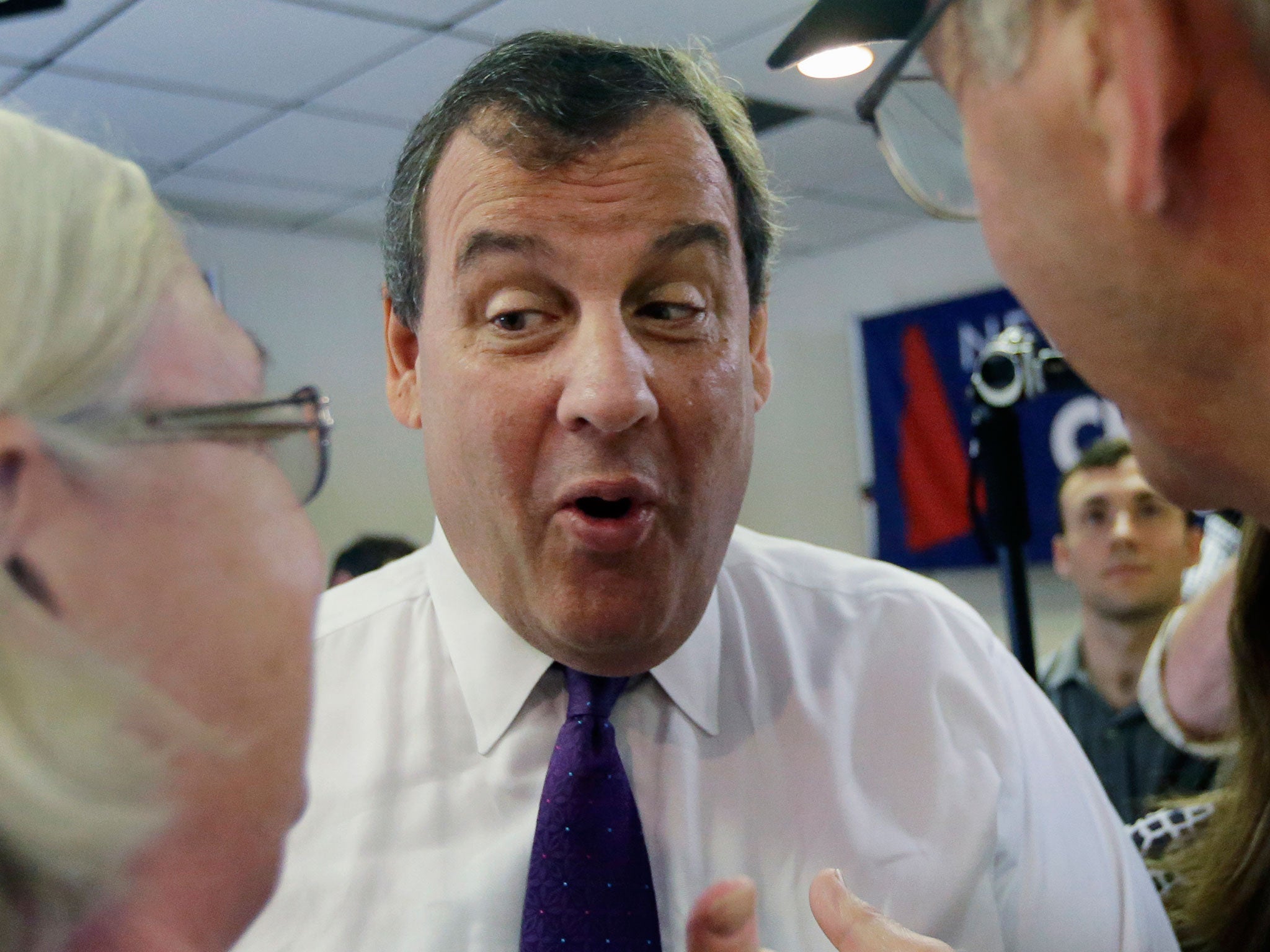Websites can create outrageous lies just for clicks, but why and how is this legal?
From Macaulay Culkin's death, to the "faked" Moon Landing, fake news can get millions of views, and if later it’s proved false, doesn't matter, you still got those views...

Your support helps us to tell the story
From reproductive rights to climate change to Big Tech, The Independent is on the ground when the story is developing. Whether it's investigating the financials of Elon Musk's pro-Trump PAC or producing our latest documentary, 'The A Word', which shines a light on the American women fighting for reproductive rights, we know how important it is to parse out the facts from the messaging.
At such a critical moment in US history, we need reporters on the ground. Your donation allows us to keep sending journalists to speak to both sides of the story.
The Independent is trusted by Americans across the entire political spectrum. And unlike many other quality news outlets, we choose not to lock Americans out of our reporting and analysis with paywalls. We believe quality journalism should be available to everyone, paid for by those who can afford it.
Your support makes all the difference.On the face of it, it seemed no weirder than other statements we’ve heard from hardline US Republicans. “Chris Christie: Women’s Viagra Pill Will Only Increase Lesbianism,” ran the headline, and the story quickly began spreading across social media. Christie, now a contender for the Republican presidential nomination in 2016, was claimed to have become agitated when asked about flibanserin, the experimental drug intended to boost the female sex drive.
“The men of today already have enough trouble satisfying women as it is,” ran the quote. “Who are they going to turn to to quench that thirst? Other women. Men aren’t machines, but neither are they. They just haven’t realised it yet.” More than 240,000 people registered their interest in the story on Facebook. But it wasn’t true. It may never have occurred to them that it might be satire, but it was. Weak satire, but satire nonetheless.

The website that still carries this story, newslo.com, proclaims itself as “the first hybrid news/satire platform on the web”. Each page contains a button that highlights which parts of the story are true, and which aren’t. But the eyes tend to bypass the buttons and drift to the text, where the jokes aren’t that funny and the satirical targets are not always that obvious. The Christie story ended up being uncritically passed on by so many people that snopes.com, the web’s primary debunking resource, saw fit to publish a piece emphasising that he had said no such thing. That debunk has been viewed more than 30,000 times. But the original article has been seen many, many more times.
Snopes.com’s workload has been increasing as websites such as newslo.com intentionally blur the lines between news, satire, entertainment and downright falsehood. “Dave Chappelle, Dead At 41,” proclaims NewsBuzzDaily, reporting the demise of an American comedian who is still very much alive. “Little Red Book – Original Copy Sold For $500M,” runs a headline on notallowedto.com, for reasons that remain unclear. “Spain Found Guilty Of Bribing Referees During 2010 World Cup”, “Doctors Confirm First Human Death Caused By Genetically Modified Food”, “Instant Noodles Cause Cancer”, “Air Force, Marines Cancel F-35 Joint Strike Fighter”, “Drake Arrested After Caught Having Sex With 16 Year Old” – these stories are all completely false, but gained traction as we pounced upon the claims and shared them. Snopes.com has now published a list of “Fake News Sites To Avoid Sharing”, which includes National Report (“America’s #1 Independent News Source”), World News Daily Report (“News You Can Trust!”), Huzlers (“Breaking News & Urban Entertainment”) and Empire News. All these sites play fast and loose with the word “news” while delivering material that’s completely fabricated.
They also carry barely noticeable disclaimer pages explaining that the stories are intended for “entertainment purposes” – but it’s not immediately apparent who’s being entertained. There are few of the belly laughs that you might get from satirical news sites such as The Onion or The Daily Mash; indeed, if confusion is the goal, there’s little incentive to be funny. Maybe it’s just for the entertainment of the people penning the stories. “I think there’s something quite devious and unpleasant about them,” says Neil Rafferty, the editor-in-chief of The Daily Mash. “It seems like a deliberate attempt to hoax people, in a really mean way. It’s certainly not about bringing joy to people’s lives.”
The internet has a long tradition of baiting the gullible and misleading the inattentive, from fake online pregnancy tests, and Photoshopped images offering proof of unlikely events, to mischievously altered Wikipedia pages. Even Lord Justice Leveson, in his report on the culture and ethics of the British media, repeated the peculiar assertion on Wikipedia that this newspaper was co-founded by one “Brett Straub”. But the more fantastic and ridiculous the claim that’s believed, the funnier we find the gullibility. When Jack Warner, the former vice-president of Fifa, attempted to defend himself against corruption accusations using an article he’d printed from The Onion website, we laughed. We scoffed at the sense-of-humour bypass that caused Radio 1 to conduct a follow-up phone-in to a Daily Mash story claiming that there’ll be no one called Gary left in Britain by the year 2050. But when a fake news story with a believable headline takes people in, the resulting confusion isn’t particularly funny. At best, it prompts a raised eyebrow and a weary sigh. So why bother? That’s the question now being asked of websites such as National Report.
“There’s a spectrum of misinformation out there,” says Adrienne LaFrance, the senior editor of The Atlantic and a former author of Gawker’s myth-debunking blog, Antiviral. “It’s not clear which websites are crimes against journalism and which ones are crimes against comedy. Some hide behind satire or parody, but it’s not clear because it’s not funny.” And as Rafferty points out, the aim of satire shouldn’t be about fooling people; it should be about making them laugh. “We’re always looking at our headlines and thinking, ‘Could someone actually believe this?’” he says. “And if it does [seem believable], then we haven’t done our job properly.”
The founder of National Report, Allen Montgomery (a pseudonym), has claimed in interview that his efforts are an attempt to highlight the spread of misinformation. “National Report is often the first place people actually realise how easily they themselves are manipulated,” he said to the marketing website Digiday late last year, “and we hope that makes them better consumers of content.” It’s hard to know how disingenuous his claims are, but one thing is clear: as a strategy for bringing in traffic and advertising revenue, making up fake news is a winner. In the rush to be first with news, sensational stories will inevitably slip under the radar and on to social media. “The way people share stories and information – that’s human nature,” LaFrance says. “We live in a world where people say outrageous things. Some of the things you hope aren’t true actually turn out to be true. So you can understand why people believe things that in retrospect are clearly untrue – and I think part of that is to do with assimilating to this new, real-time news environment.”
A new British news site, Quirker, is devoted exclusively to the bizarre-but-true. “So much of the news we see is pre-digested press releases from marketeers and spin doctors,” says Michael Moran, a journalist involved with the site, “so we like to hear things that are weird and funny and relatable. Everybody’s weird. Everybody wants to feel like they’re not on their own and that there are weirder, sillier and more ridiculous people out there.” But our commitment to sharing weird stories can create a disorienting online landscape when a percentage of the ones heading our way are simply false. This confusion is exacerbated on social media, where legitimate stories often look identical to fake ones. In an attempt to combat this problem, Facebook tested a feature last year whereby stories from sources known to be fake or satirical were appended with the word “SATIRE” to stop people becoming confused. Other ideas have been floated: a recent article in New Scientist pondered whether Google’s natural language-processing techniques could generate a “knowledge-based trust score” for each source, giving an indication of “truthiness”.
Regardless of attempts to steer us away from fake news, Craig Silverman, editor of BuzzFeed Canada, believes that our brains can be stubborn. “Once we learn something,” he wrote recently in a paper exploring misinformation, “we are more likely to retain it intact… Once we hear something and come to accept it – even if it’s not core to our beliefs and worldview – it’s still difficult to dislodge.” While fictitious quotes from US politicians are all very jolly, fake stories run by National Report about the supposed spread of Ebola in the US caused genuine public alarm, and strategies used to promote fake news are being used to promote propaganda. Last year, a UN representative claimed that Isis had ordered all girls and women in and around Mosul to undergo genital mutilation, but journalists at i100 and The Independent established this was based on a fictitious edict issued by a group opposing Isis. The World Economic Forum has now called “the rapid spread of misinformation” one of the top 10 issues facing the world.

It doesn’t help, of course, that lies equal clicks and clicks equal cash, in the form of advertising revenues. In the aforementioned paper, “Lies, Damn Lies and Viral Content”, Silverman addresses the financial motive websites have to promote lurid but untrue stories, even if they’re simultaneously questioning their veracity. He quotes Ryan Grim, the bureau chief in Washington for The Huffington Post: “If you throw something up without fact-checking it, and you’re the first one to put it up, and you get millions and millions of views, and later it’s proved false, you still got those views.”
But combating the spread of misinformation is a thankless and unrewarding task, with debunking articles – such as the Snopes rebuttal of the Christie story – rarely achieving the widespread traction of the original. “Sensational stories have a tendency to spread faster than [the words of] the person telling you to think logically,” LaFrance says. “I loved doing Antiviral, but I went on a radio show and someone asked me how it felt to be such a killjoy! I’d never thought of it that way – I just really enjoy separating fact from fiction.” Silverman notes that debunking has to be handled carefully; people who’ve been taken in can be exceedingly touchy about their poor judgement. “Chastising someone as stupid or gullible for sharing a false viral story is a bad strategy,” he writes in the paper. “Tone and approach matter; the person being corrected needs to be able to let down his or her guard to accept an alternate truth.”
All in all, the spread of fake news seems unassailable. The presence of a “satire” disclaimer seems sufficient to head off legal challenges, and the snowballing viral effect is sufficient to crush debunking voices. But LaFrance, perhaps surprisingly, agrees with the editor of National Report that forcing us to sift through sources both true and untrue is ultimately an educative process. “People who aren’t journalists are now privy to the messy way that news unfolds and facts come together,” she says. “That brings a level of understanding people might not have had when they just picked up a newspaper or watched a newscast. If that inspires more critical thinking about our relationship with information as it comes to us, that’s a really positive thing.” So if you spot someone sharing something that you know is outlandish, strike a blow for truth and let them know. But be nice about it. After all, we’ve all had our moments of gullibility, and we certainly haven’t had our last.
Would you believe it? Falsehoods that made the news
Conspiracy Theorist Convinces Neil Armstrong Moon Landing Was Faked
Two Bangladeshi newspapers apologised after repeating satirical site The Onion’s claims that Neil Armstrong was now reconsidering whether he ever went to the Moon at all. “We thought it was true so we printed it without checking,” said associate editor Hasanuzzaman Khan, shortly after being rumbled.

Texas Town Quarantined After Family Of Five Test Positive For The Ebola Virus
At the height of the panic surrounding the spread of Ebola, this story, published on the National Report website – one of many it concocted about the virus – received more than 330,000 Facebook likes and more than 1.2 million shares across social media. It was, needless to say, completely untrue.
Maplin Is Where Men Meet For Sex
The electrical-goods retailer expressed its unhappiness with this suggestion, made in a story published by The Daily Mash, presumably because it thought people might believe it. There are no reports that anyone actually did.
Sarah Palin To Join Al Jazeera as Host
The Daily Currant put forward the unusual idea of the former US vice-presidential candidate Sarah Palin taking a role at the Qatari news channel. The Washington Post immediately followed it up with a blog post entitled “Sarah Palin’s plan to reach ‘millions of devoutly religious people’ through al-Jazeera”.

Macaulay Culkin Found Dead at Age 34
When a fake MSNBC website announced the death of the Home Alone actor, social media dutifully sprang into action. Within hours, Culkin was posting pictures on Instagram mocking the announcement and thus proving his continued existence.

ClickHole: They Said What?
The Onion offshoot ClickHole regularly posts fictitious and rather mundane quotes from celebrities in a feature entitled “They Said What?” Russell Crowe, Salman Rushdie and the American news presenter Anderson Cooper are among the celebrities to accuse ClickHole of making the quotes up. Which, of course, it did.
Join our commenting forum
Join thought-provoking conversations, follow other Independent readers and see their replies
Comments